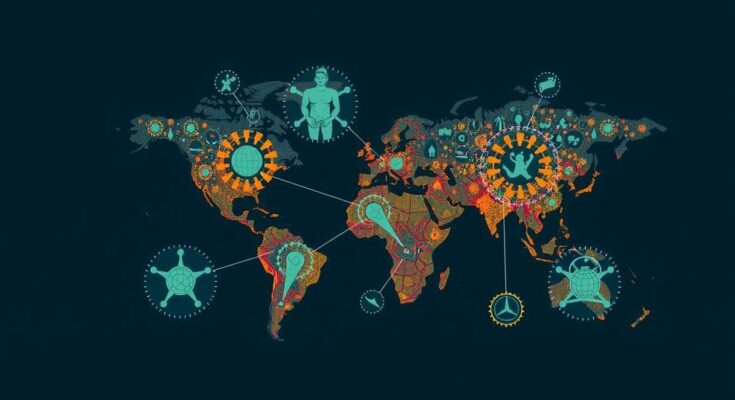The American Geophysical Union has introduced an ethical framework for geoengineering research aimed at guiding responsible practices to tackle global warming. This framework emphasizes ethical considerations, community involvement, and transparency, proposing five key principles to address the complexities of climate interventions. The AGU underscores the importance of reducing carbon emissions while exploring geoengineering options, ensuring that research is inclusive and just, and advocating for responsible governance.
As global recognition of climate change intensifies, the American Geophysical Union (AGU), representing the largest collective of Earth and space scientists, has unveiled an ethical framework aimed at guiding geoengineering research. This report emphasizes the essentiality of ethical considerations in the exploration of interventions intended to manipulate the Earth’s climate systems. The findings assert that the deployment of large-scale geoengineering techniques must be informed by ethical principles to empower communities with knowledge regarding potential risks and benefits associated with such actions. AGU President Lisa J. Graumlich articulates the urgency of addressing carbon emissions, stating, “Climate change requires immediate action, and our most urgent, non-negotiable priority must be to tackle the root cause, carbon emissions.” The report advocates for a comprehensive evaluation before engaging in massive climate interventions, advocating for inclusive practices that represent various communities and recognize their unique challenges and vulnerabilities. The proposal, titled “Ethical Framework Principles for Climate Intervention Research,” is the culmination of a two-year effort involving over 40 international experts, distilled into five guiding principles. These principles stress responsible research practices, climate justice, participation of affected communities, transparency in funding, and informed governance. By adhering to these standards, researchers are urged to consider the broader implications of their work and ensure equitable engagement with those impacted by climate change interventions. Climate interventions, spanning carbon dioxide removal strategies and solar radiation modification techniques, are outlined in the report. However, the AGU underscores that these approaches should not supplant ongoing efforts aimed at reducing greenhouse gas emissions. Janice R. Lachance, AGU’s Interim Executive Director and CEO, emphasizes that while discourse around climate interventions evolves, the core mandate remains clear: solutions must not detract from the fundamental goal of emissions reduction. The framework is designed to evolve alongside advancements in climate science and remains adaptable to various contexts and stakeholder needs. AGU is resolutely committed to fostering discussions that incorporate these ethical guidelines within climate intervention research and policy-making.
The rising global interest in geoengineering, defined as large-scale interventions to alter the climate system to mitigate global warming, has prompted the need for a comprehensive ethical framework. The American Geophysical Union (AGU) developed this framework as a guide for responsible research and dialogue surrounding climate interventions. Given the potential risks and the unknown consequences of geoengineering, ethical principles are deemed crucial in ensuring informed societal decisions. The report aims to navigate the complexities associated with climate change interventions, drawing on precedents established in other ethical research fields while advocating for inclusivity and social justice in decision-making processes.
The ethical framework introduced by the American Geophysical Union marks a significant step in addressing the challenges of geoengineering research. By prioritizing ethical principles, the AGU provides a structured approach for researchers and policymakers to consider the societal and environmental impacts of their work. It aims to foster inclusive dialogues that recognize diverse community needs while promoting responsibility in climate intervention practices. The successful implementation of this framework may help mitigate risks associated with geoengineering and ensure that research supports equitable solutions to climate change.
Original Source: phys.org




